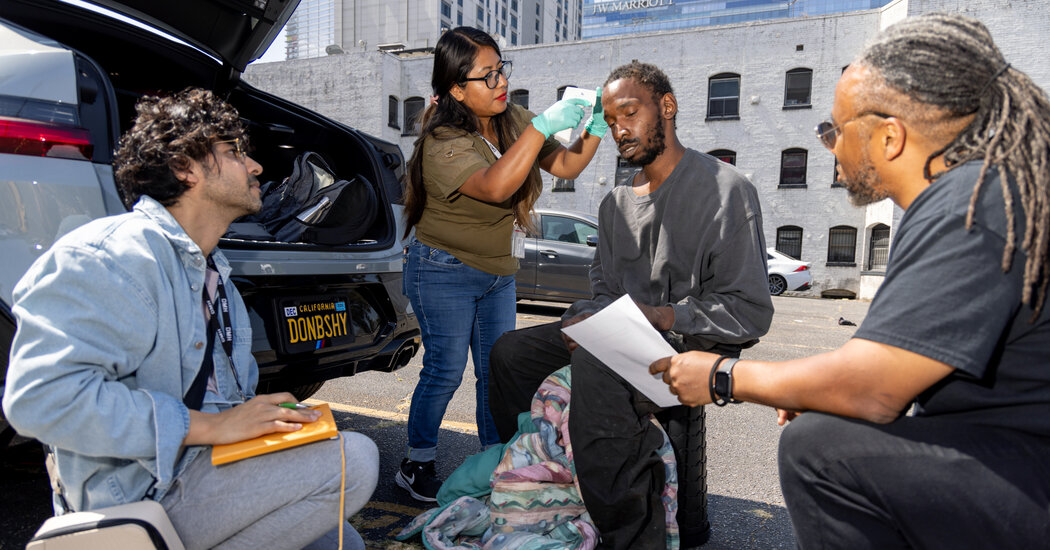In a downtown Los Angeles parking lot, a stretch of asphalt tucked between gleaming hotels and the 110 freeway, a psychiatrist named Shayan Rab was seeing his third patient of the day, a man he knew only as Yoh.
Yoh lived in the underpass, his back pressed against the wall, a few feet from the rush of cars exiting the freeway. He made little effort to fend for himself, even to find food or water. When outreach workers dropped off supplies, he often let people walk away with them.
He could barely converse, absorbed by an inner world that he described in fragments: a journey to Eden, a supersonic train, a slab of concrete hanging in space.
But here he was, seated on a stool in the parking lot, talking to his psychiatrist. Two weeks earlier, Dr. Rab had persuaded Yoh to start an oral antipsychotic medication. Now the doctor wanted to go further.
“One thing that can make your life a little bit easier,” he said. “We have the same medication that comes as a monthly injection, so you only have to take it once. Is that something you’d be interested in? It’s better for you.”
“Yeah,” said Yoh, dreamily. His hair was matted, his ankles caked with dirt. He hadn’t slept well, he said, because he had been visited by a poltergeist.
